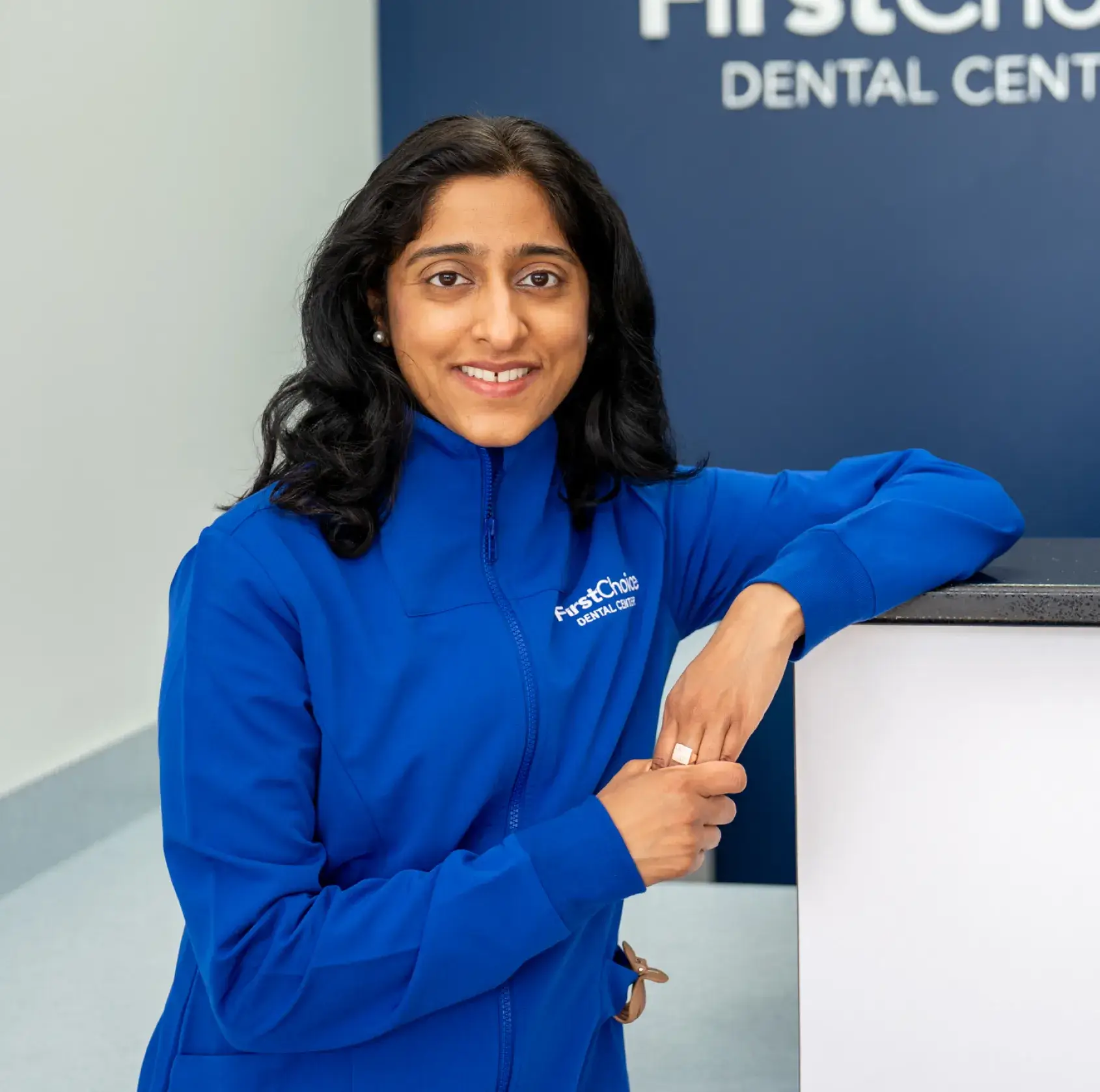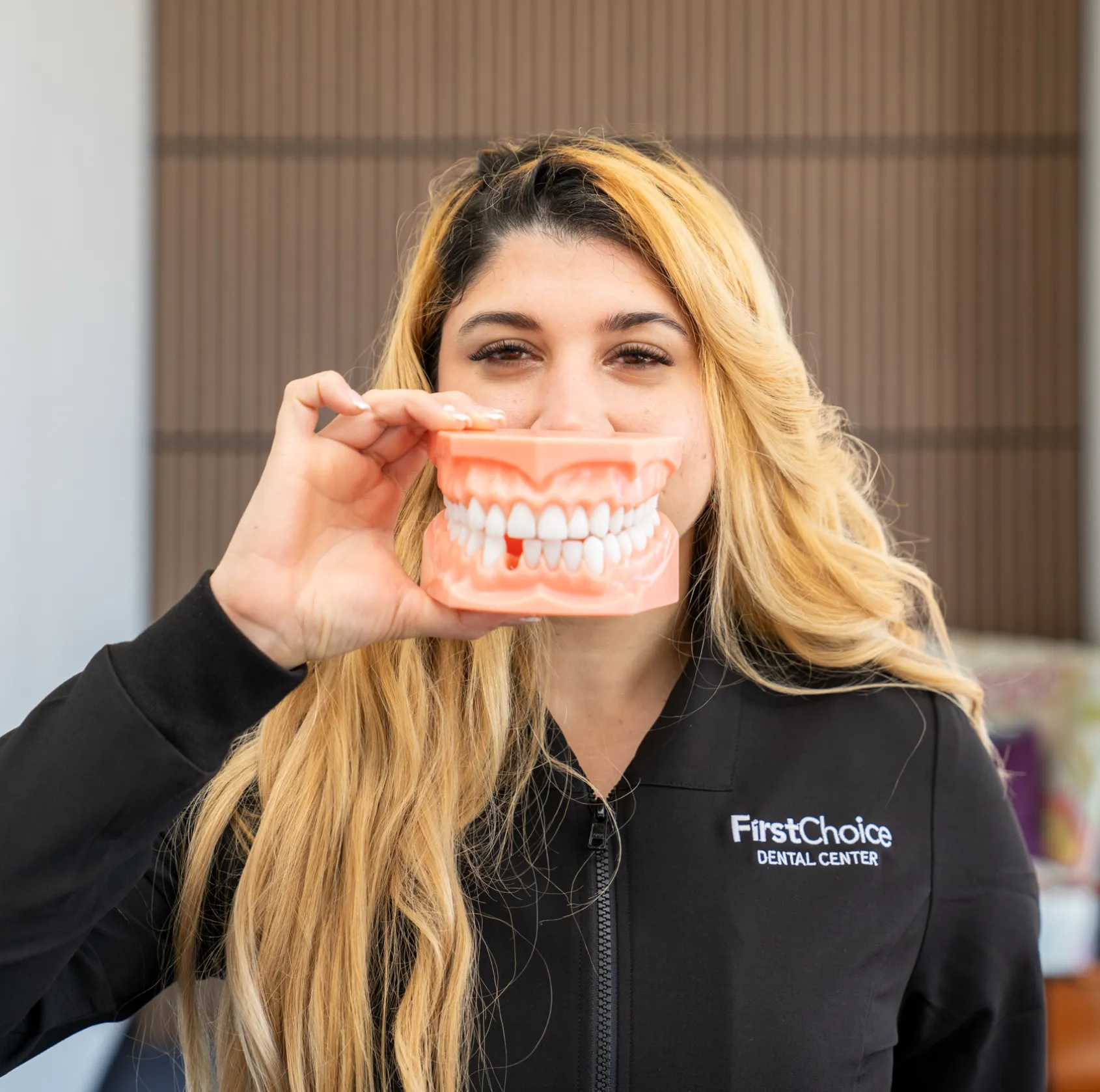When you visit our office, you can depend on our team to create the smile you’ve always wanted, while keeping your comfort and wishes in mind.
Oral and maxillofacial surgeons are specialists with advanced training and expertise in the diagnosis and treatment of various head and neck conditions and injuries. After four years of dental school, an oral and maxillofacial surgeon completes four to six years of additional formal training in treating the craniomaxillofacial complex. This specialty is one of 9 dental specialties recognized internationally and by the American Dental Association (ADA).
Whether your dentist refers you to our office, you have pain or symptoms causing you concern, or you simply have questions you would like answered, please contact our office in Jeffersontown (JTown) today to schedule an appointment. We are here to answer your questions and provide the treatment you deserve!
An oral and maxillofacial surgeon can diagnose and treat a wide variety of conditions. The following are just some of the many conditions, treatments, and procedures that oral and maxillofacial surgeons handle on a daily basis:

This is easily the most common reason for tooth extraction, accounting for around two-thirds of all extraction procedures performed. When decay affects the surface of the tooth as well as the pulp, root canal procedures cannot be performed. Root canal therapy is only viable where the general structure of the tooth is in stable condition.
There are a variety of explanations associated with extra teeth, but most commonly they are baby teeth that do not shed. Extra teeth take up space on the arch, causing nearby teeth to twist out of place. A tooth extraction is necessary in this case to provide enough space for the teeth to properly realign.
Often teeth have to be extracted because the gums and underlying bone are so severely eroded that they can no longer hold the tooth in place securely. The cause of bone and gum recession is almost always advanced periodontal disease (gum disease). Poor bone density means that the chance of restoring the natural tooth is minimal.
Traditional orthodontic braces require enough space for the teeth to move into ideal alignment. If space cannot be created naturally, a tooth may be extracted as an alternative.
Fortunately, dentists are able to save injured teeth in most circumstances with the aid of root canal therapy. However, there are some instances where the tooth has become fractured in a way that makes repair impossible. Your oral health professional will remove the tooth and use a prosthetic replacement in most cases.
Generally, tooth extraction can be simple in nature or involve more complex surgical processes. Simple extractions are performed on fully emerged teeth after applying local anesthetic to the treatment site. Instruments are used to elevate the tooth and then sever the periodontal ligament. The tooth is then carefully removed with dental forceps.
Surgical extractions are performed on teeth that are either invisible or inaccessible, like un-erupted wisdom teeth. An incision is usually made in the gum tissue, and a drill is used to precisely remove some of the adjacent bone tissue. Sometimes, the tooth has to be split into several pieces to completely remove it.

After your tooth has been extracted, healing will take some time. Within 3 to 14 days, your sutures should fall out or dissolve. For sutures that are non-resorbable, your doctor will schedule a follow-up appointment to remove the stitches for you. Your tooth’s empty socket will gradually fill in with bone over time and smooth over with adjacent tissues.
Keep pressure on the gauze pad that your doctor placed over the surgical area by gently biting down. Dampen the gauze sponge with water if it begins to dry out. Try to maintain constant pressure in intervals of 45-60 minutes, repeating as often as needed, or until bleeding lessens. Change the gauze as needed.
Keep your head elevated and try to lower your activity level as much as possible.
48 hours after surgery, rinse mouth with warm salt water every 1-2 hours. Avoid using any mouthwash containing alcohol, as it can irritate the wound.
Keep your mouth clean by brushing areas around the surgical site, but be sure to avoid sutures. Touching the wounded area in any fashion should be prevented.
Use ice packs to control swelling by placing them on facial areas near the extraction.
Take all prescribed medications accordingly. If any itching or swelling occurs, contact the practice immediately, or go to the nearest emergency room.
Try to eat softer foods, preferably high in protein.
Keep your body hydrated by drinking plenty of fluids, but do not drink through a straw for the next 5-7 days.
If you are a regular tobacco user, refrain from smoking for the next 3-4 days, as smoking increases your chances of getting a dry socket as well as an infection.
Bleeding after a tooth extraction are entirely normal. A pinkish tinted saliva and subtle oozing is fairly common during the first 36 hours. If bleeding gets excessive, control it by using dampened gauze pads and biting down to keep pressure on the area. As an alternative to gauze pads, a moistened tea bag can be used, as the tannic acid helps blood vessels contract. Apply pressure to the gauze or tea bag by gently biting down for 30 minutes. Please remember that raised tempers, sitting upright, and exercise can all increase blood flow to the head, which can cause excess bleeding. Try to avoid these as much as possible. If your bleeding does not reduce after 48 hours, please call the practice.
Some patients have small, sharp tooth fragments that were unable to be completely removed during surgery. During the recovery period, these dead bone fragments, or bone sequestra, slowly work themselves through the gums as a natural healing process. This can be a little painful until the sequestra are removed, so please call our practice immediately if you notice any sharp fragments poking through the surgery site.
In the days that follow your tooth extraction, pain should gradually subside. Rarely, patients report that pain increases to a throbbing, unbearable pain that shoots up towards the ear. Often this is a case of dry socket. Dry socket occurs when the blood clot becomes irritated and ousted before healing is complete. Food and debris can then get into the socket, causing irritation. Tobacco users and women taking oral contraceptives are at a higher risk of getting dry socket. Dry socket is not an infection but does require a visit to our office. If you think you may be suffering from dry socket, please contact the practice immediately.
Because you may have been fasting prior to surgery, your blood sugar levels may be lower than normal. Until your body has had the chance to catch up and process some sugars, you should remember to stand up slowly when getting up from a relaxed position. For somewhat immediate relief, try eating something soft and sugary, stay in a relaxed position, and reduce the elevation of your head.
Many patients report still feeling numb hours after their tooth extraction procedure. An extended lack of feeling around the mouth is normal and can last 10-12 hours after surgery.
Swelling should subside almost entirely within 10 days after surgery. Immediately following your tooth extraction, apply an ice pack to the facial areas near the extraction. Continue using the ice in 15 minute intervals for the first 36 hours. After 36 hours, ice will no longer be beneficial in reducing swelling, and moist heat should be used instead. To decrease swelling, apply a warm damp, cloth to the sides of your face.
If you experience a sore jaw and difficulty chewing or swallowing, do not be alarmed. Occasionally, patients’ chewing muscles and jaw joints remain sore 3-5 days after surgery. This soreness can also make it difficult to open and close your mouth. Soreness should eventually subside.